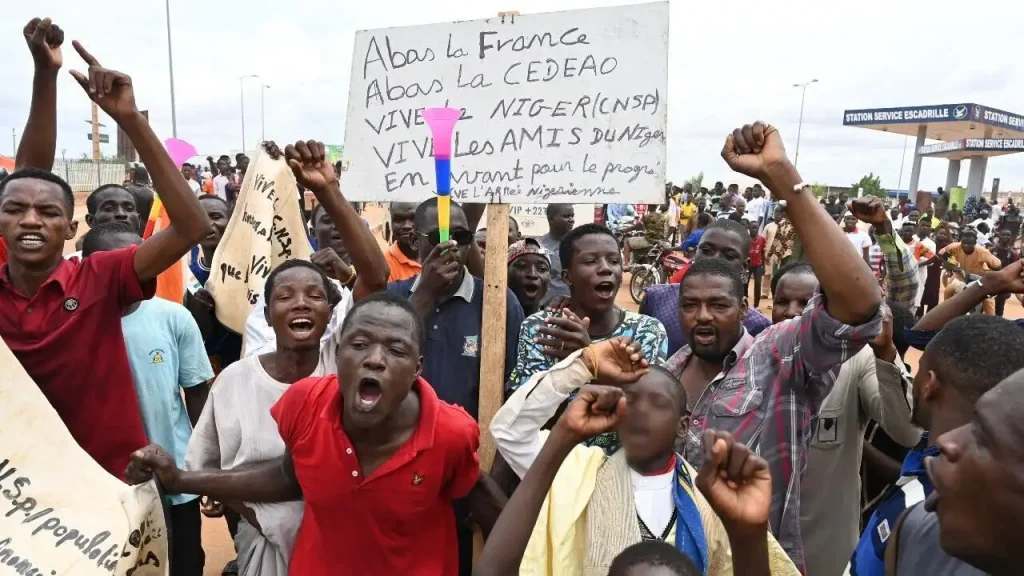On August 3, 2023, France urged Niger’s new military junta to “fully guarantee” the safety of its embassy in Niamey as hundreds of pro-military protesters took to the streets following a coup that ousted President Mohamed Bazoum on July 26. The French foreign ministry called on Nigerien security forces to secure foreign diplomatic personnel, citing obligations under the Vienna Convention. This request came hours before demonstrations erupted in the capital’s Place de l’Indépendance, where some protesters waved Russian flags, signaling anti-French sentiment.
Protests and Evacuations
The coup triggered widespread unrest, with a violent protest outside the French embassy prompting France to evacuate 992 people, including 560 French citizens and other nationals, via five military aircraft by August 2. “The evacuation operation for nationals wishing to leave Niger has come to an end,” the French foreign ministry announced. While 1,200 French nationals are registered in Niger, some were abroad during the crisis. Coup leader General Abdourahamane Tchiani claimed French citizens faced “no objective reason to leave” and were under no threat, a statement met with skepticism amid rising tensions.
International Response
The unrest prompted global concern. U.S. President Joe Biden demanded Bazoum’s immediate release, while the U.S. ordered a partial embassy evacuation on August 2. Britain followed suit, temporarily reducing its embassy staff. The protests, coinciding with Niger’s Independence Day, highlighted anti-Western sentiment, fueled by France’s colonial history and military presence. Demonstrators’ display of Russian flags underscored shifting geopolitical alliances, with some Nigeriens favoring closer ties with Moscow.
Context of the Crisis
The coup, led by General Tchiani, has destabilized Niger, a key Western ally in the Sahel for counterterrorism efforts. France’s 1,500 troops and a U.S. drone base in the country face uncertainty as the junta consolidates power. The Economic Community of West African States (ECOWAS) imposed sanctions and threatened military intervention if Bazoum isn’t restored within a week, escalating regional tensions. France’s embassy, a focal point of protests, faced prior violence, with windows smashed and anti-French slogans chanted, reflecting growing resentment.
A Delicate Diplomatic Situation
As Niger navigates this political upheaval, France’s demand for embassy security underscores the broader challenge of maintaining diplomatic relations in a volatile climate. The junta’s rejection of French concerns and the public’s anti-Western protests signal a complex path ahead. With the international community watching closely, the situation in Niamey remains precarious, testing Niger’s new leadership and its ties with global powers.






